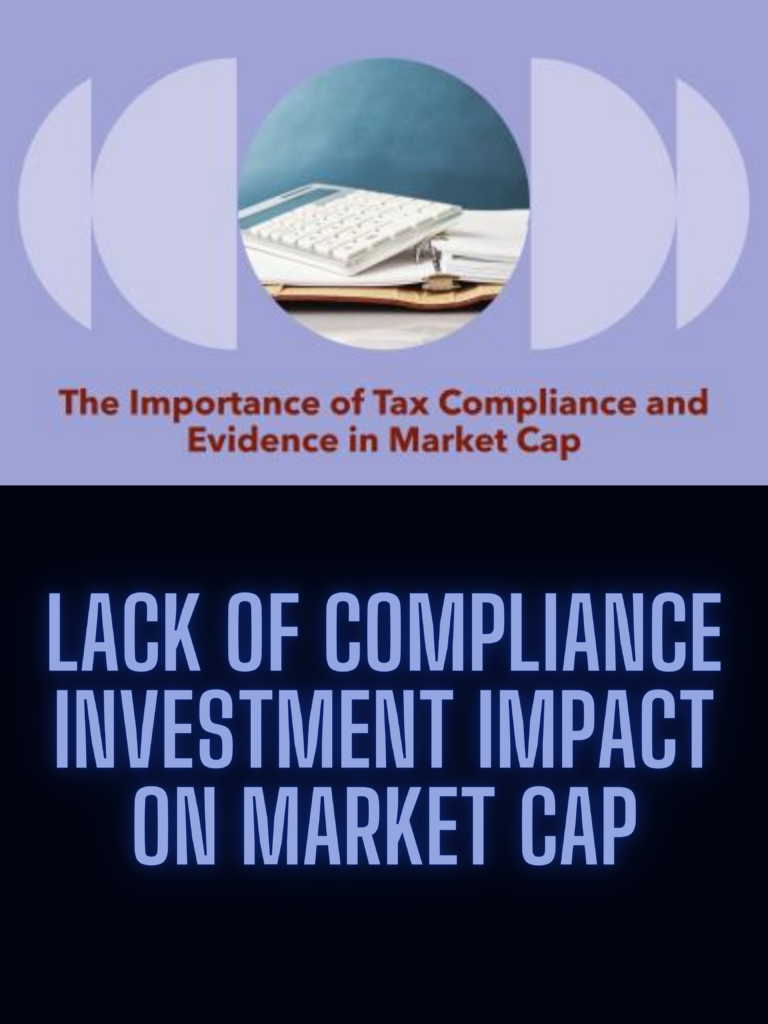Introduction:
This article delves into How Lack Of Compliance Investment Impact on Market Cap. In today’s business world, compliance is a critical aspect of corporate governance. Companies that do not invest in compliance measures are at risk of facing legal and financial penalties, which can negatively impact their market value. In addition, non-compliance can lead to a loss of reputation and consumer trust, which can further reduce market capitalization.

Lack Of Compliance Investment Impact on Market Cap
Compliance as a Cornerstone:
Effective compliance is not just a legal requirement but a fundamental cornerstone of corporate governance. Companies that neglect compliance risk facing severe consequences that can reverberate through their market standing.
Regulatory Landscape Dynamics:
The regulatory environment is dynamic and subject to frequent changes. Insufficient investment in compliance can leave companies vulnerable to legal repercussions, affecting investor confidence and, consequently, market cap.
Trust Erosion: Lack Of Compliance Investment
Investors place a premium on trust. Lack of commitment to compliance can erode investor trust, leading to a flight of capital and a subsequent reduction in market capitalization.
Legal Fallout:
Non-compliance often results in legal battles and regulatory fines. The financial burden of such legal fallout can significantly impact a company’s valuation in the market.
Reputational Damage:
Compliance issues can tarnish a company’s reputation, making it less attractive to both investors and consumers. A damaged reputation directly correlates with a diminished market cap.
Risk of Regulatory Scrutiny:
Inadequate compliance investment increases the likelihood of regulatory scrutiny. Companies facing investigations are viewed unfavorably by the market, causing a decline in market valuation.
Impact on Cost of Capital:
Non-compliance may lead to higher costs of capital as lenders and investors demand a risk premium for the uncertainties associated with a company facing legal challenges.
Competitive Disadvantage:
Companies that prioritize compliance gain a competitive edge by demonstrating commitment to ethical business practices. Failure to invest in compliance puts a company at a disadvantage in comparison to its compliant competitors.
Market Perception: Lack Of Compliance Investment
Investor perception is crucial in determining market cap. Companies known for their commitment to compliance are perceived as stable and secure investments, positively impacting their market valuation.
Long-term Sustainability:
Investing in compliance is an investment in the long-term sustainability of a business. Companies that neglect compliance risk short-term gains at the expense of long-term stability and market standing.
Stakeholder Confidence:
Shareholders, customers, and employees all look for reassurance in a company’s compliance practices. Lack of investment in compliance can erode confidence among stakeholders, triggering a negative impact on market cap.
Strategic Alignment: Lack Of Compliance Investment
Alignment of compliance initiatives with overall business strategy is imperative. Companies that strategically invest in compliance not only mitigate risks but also enhance their strategic positioning in the market.
Conclusion: Lack Of Compliance Investment
In conclusion, the lack of investment in compliance can have far-reaching consequences on a company’s market cap. It is crucial for businesses to recognize compliance as an integral part of their operations, deserving strategic attention and financial resources. Prioritizing compliance not only safeguards against legal challenges but also fosters trust, enhances reputation, and ultimately contributes to a more robust and sustainable market presence.
Companies that do not invest in compliance measures are at risk of facing legal and financial penalties, which can negatively impact their market value. Small and mid-cap companies that lag behind in sustainability disclosures may face a reduction in market capitalization. Regulatory challenges are becoming increasingly complex, and companies must invest in compliance measures to avoid penalties and maintain their market value. Investing in compliance measures is crucial for companies to maintain their market capitalization. Companies that prioritize sustainability and environmental responsibility are more likely to attract investors and maintain consumer trust, which can help boost their market value.
Disclaimer
This article has been created on the basis of internal data, information available publicly, and other reliable sources to be believed. The article may also include information which are the personal views/opinions of the authors. The information included in this article is for general, educational, and awareness purposes only and is not a full disclosure of every material fact.
All the information on this website i.e. World Virtual CFO – is published in good faith and for general information purposes only. World Virtual CFO does not make any warranties about the completeness, reliability, and accuracy of this information. These are my views for only information purposes. Any action you take upon the information you find on this website (World Virtual CFO), is strictly at your own risk. World Virtual CFO will not be liable for any losses and/or damages in connection with using our website. For details please refer to our disclaimer page.
Dr. Dinesh Sharma is an award-winning CFO and AI strategist with over two decades of experience in financial leadership, digital transformation, and business optimization. As the founder of multiple niche platforms—including WorldVirtualCFO.com—he empowers professionals and organizations with strategic insights, system structuring, and innovative tools for sustainable growth. His blogs and e-books blend precision with vision, making complex financial and technological concepts accessible and actionable.